Best Fruits for PCOS: Support Fertility, Energy & Hormone Health Naturally
Boost fertility, energy, and hormone health with the best fruits for PCOS—naturally low-GI and full of PCOS-supportive nutrients.
If you have PCOS, you’ve probably been told to “watch your diet”—but what does that really mean? Here’s the truth: not all fruits are off-limits.
In fact, some of the best fruits for PCOS can stabilize your blood sugar, reduce cravings, and even help with weight control.
Backed by science and real-life results, this guide shows you how the right fruit choices can make managing PCOS a little easier—and tastier.
Polycystic ovarian syndrome is one of the most common hormonal disorders in women today.
What is PCOS?
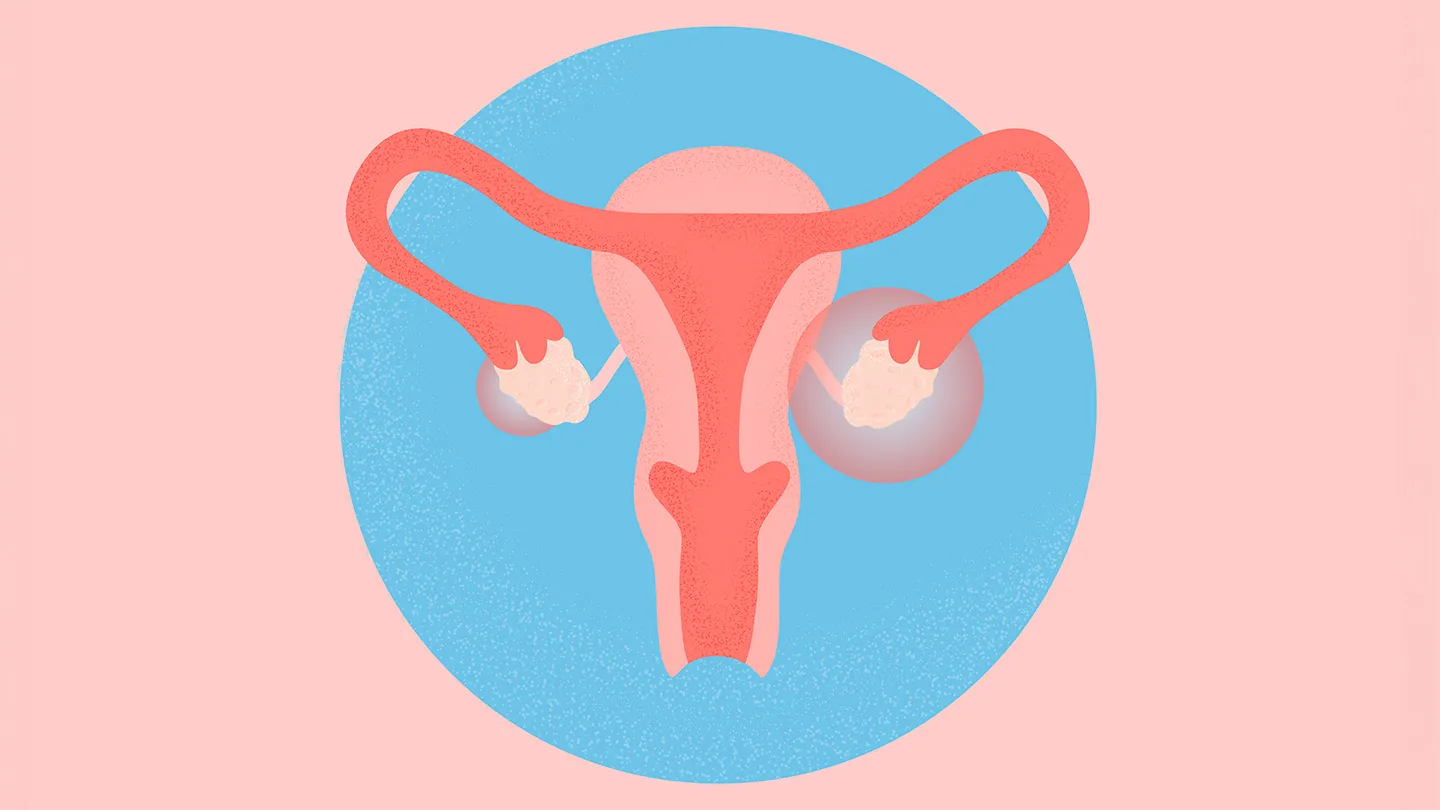
Polycystic Ovary Syndrome (PCOS) is a hormonal disorder that affects women in their reproductive age. It happens when the body makes extra male sex hormones (androgens), which leads to problems like irregular periods, acne, excessive hair growth, and weight gain.
The good news? Diet and lifestyle changes can help. Choosing the best fruits for PCOS, eating more whole grains, and following a balanced diet lowers your risk of long-term issues like cardiovascular disease and heart disease.
A smart pcos diet plan also helps you lose weight, improve fertility, and bring back hormonal balance. But, only a doctor can diagnose PCOS through symptoms, blood tests, and ultrasound scans.
Why Does Diet affect PCOS Symptoms?
1. Insulin Resistance is Key
Most women with PCOS struggle with insulin resistance. Eating refined carbs like white bread or sugary foods makes your insulin levels spike. This can make symptoms worse. A diet with low glycemic index fruits and lean proteins helps improve insulin resistance.
2. Blood Sugar Spikes Impact Hormonal Balance
High blood sugar levels can cause hormone swings. When you eat processed foods or too many sugary snacks, your person's blood sugar levels shoot up, creating hormonal imbalance. Low-GI fruits like berries keep blood sugars steady.
3. Healthy Fats vs. Unhealthy Fats
Healthy fats like olive oil, nuts, and seeds fight inflammation. But saturated fats, fried foods, and unhealthy fats do the opposite. They make pcos symptoms harder to control.
4. Nutrient-Dense Foods Improve Symptoms
Adding vitamin C rich fruits like oranges or kiwi boosts immunity and reduces inflammation. These nutritious foods support overall health and can improve symptoms over time.
5. Processed Foods Make It Worse
Too much processed meat (like hot dogs) or junk food leads to excess sugar and poor hormone control. Cutting these out makes managing PCOS easier.
6. Weight Management Matters
Even small weight changes can help. A healthy diet chart with protein foods, brown rice, and fresh fruits helps you manage PCOS, support fertility, and maintain a healthy weight. Experts often say, “Even a 5–10% weight loss can improve menstrual cycles in PCOS patients” (NIH, 2022)
Simple lifestyle steps like eating fiber-rich fruits can improve PCOS symptoms over time.
Best Fruits for PCOS (Low Glycemic Index & Nutrient-Rich)
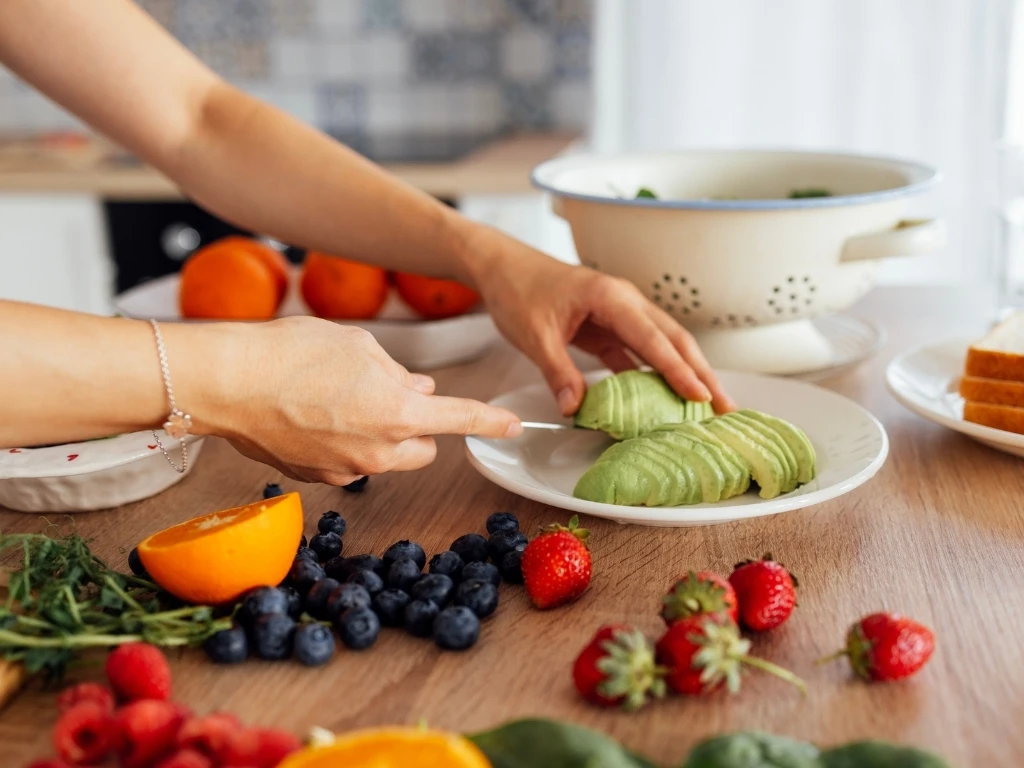
-
Berries (Strawberries, Blueberries, Raspberries): Berries are among the best foods for PCOS. They are low in sugar but full of antioxidants and fiber. Eating a handful of berries can also satisfy your sweet tooth without causing blood sugar spikes. Try adding them to oatmeal or yogurt for a PCOS-friendly breakfast.
-
Apples: Apples have a low glycemic index, which means they release sugar slowly into the blood. They are high in fiber, which helps in weight loss and controlling pcos symptoms like cravings. Apples also support a healthy diet by keeping you full longer. Slice one up with a tablespoon of peanut butter or almonds for a balanced snack.
-
Pears: Pears are rich in fiber and very gentle on blood sugar levels. They help with digestion and are great for women trying to lose weight. Since pears are high in water content, they also keep you hydrated. Many PCOD patients see better results when they follow a diet chart with low glycemic index fruits.
-
Oranges: Oranges are packed with vitamin C, which boosts your immune system and supports reproductive age women by helping the body absorb iron. They also reduce inflammation and protect against cardiovascular disease. Just remember to eat whole oranges instead of juice. Juice removes the fiber and may raise blood sugars quickly.
-
Guava: Guava is a superfruit for PCOS. It has more vitamin C than many citrus fruits and is excellent for controlling insulin resistance. High fiber in guava helps maintain a healthy weight and improves digestion. In India, guava is often part of a pcod diet plan because it helps stabilize insulin levels and reduces hunger between meals.
-
Kiwi: Kiwi is another low glycemic index fruit rich in antioxidants, vitamin C, and potassium. It helps reduce inflammation and supports hormonal balance. Eating kiwi regularly can improve skin health, immunity, and digestion. For women with PCOS, kiwi is often recommended to support fertility and improve symptoms like fatigue and mood swings.
-
Cherries: Cherries are low in sugar and have powerful anti-inflammatory compounds. They help reduce swelling in the body and stabilize insulin levels. A small bowl in the evening can also improve sleep, which is important for women managing pcos symptoms.
-
Peaches: Peaches are rich in vitamins A and C. They are naturally sweet but still low on the glycemic index. Peaches help you feel full, making them a smart choice for weight loss and avoiding cravings for sugary snacks or processed foods.
-
Plums: Plums are high in antioxidants and fiber. They are gentle on blood sugar levels and aid digestion. Eating plums regularly may lower inflammation and improve hormonal balance. They also support heart health, reducing risks linked to cardiovascular disease.
-
Grapefruit: Grapefruit is known as a “fat-burning” fruit. It helps improve insulin resistance and supports weight management. One study in the Journal of Medicinal Food found that people who ate grapefruit daily had better blood sugars and reduced weight gain.
-
Papaya (in moderation): Papaya is easy to digest and full of antioxidants. It helps reduce inflammation but should be eaten in small amounts because it has more natural sugar than berries or pears. Adding papaya slices to a balanced diet can improve digestion and support overall health.
-
Pomegranate: Pomegranate seeds are loaded with antioxidants. They help lower male hormones, improve fertility, and protect against hormonal disorders. Nutritionists often recommend them for women with PCOS as part of a pcod diet chart to fight hormonal imbalance.
Quick tip: Pair these fruits with lean proteins or healthy fats like nuts or yogurt. This keeps blood sugars steady and makes your snacks more filling.
Fruits to Avoid in PCOS (High Sugar & Blood Sugar Spikes)
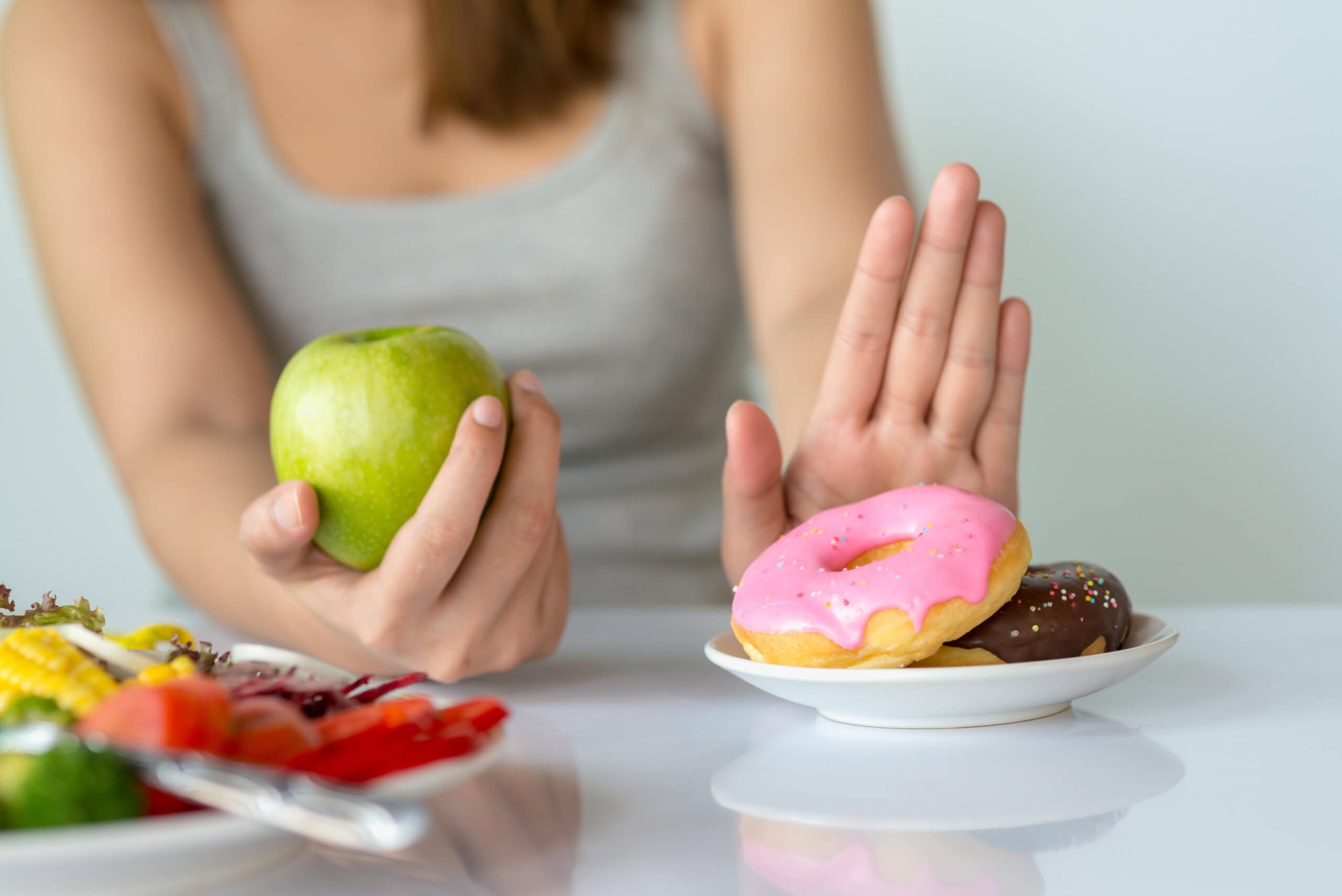
-
Bananas (Overripe): Overripe bananas have more natural sugar. This causes blood sugars to rise fast. If you love bananas, eat small portions and pair them with protein foods like nuts to keep insulin levels steady.
-
Mangoes: Mangoes are very sweet. They are high on the glycemic index and can lead to spikes in blood sugar. Eating too many may increase weight gain and worsen pcos symptoms.
-
Grapes: Grapes are small, but they carry a lot of sugar. A handful may feel light, but it can quickly raise blood sugar levels. For women with PCOS, this can make hormonal balance harder to achieve.
-
Pineapple: Pineapple tastes refreshing but is a high glycemic index fruit. It digests quickly, raising insulin levels. It’s better to replace it with low glycemic index fruits like berries or guava.
-
Lychees: Lychees have little fiber but lots of sugar. This combination makes them risky for people managing insulin resistance. Eating them often can worsen pcos symptoms like fatigue and cravings.
-
Dried Fruits (Raisins, Dates, Figs): Drying fruit removes water but keeps sugar. Just a few pieces of raisins or dates can be equal to eating a large serving of fresh fruit. These can act like sugary snacks and raise insulin resistance quickly.
-
Watermelon: Watermelon is hydrating but has a high glycemic index. Eating it in large portions may raise blood sugar too quickly. A few small slices are fine, but don’t make it a daily habit if you are on a pcod diet chart.
-
Custard Apple (Sitaphal): Custard apples are creamy and sweet. But that sweetness comes from excess sugar, which may lead to excess weight gain and worsen pcos symptoms.
How Fruits Fit into a PCOS Diet Plan

-
Balance Blood Sugar with Low-GI Fruits: Choose fruits that have a low glycemic index (GI). These include berries, guava, and kiwi. They release sugar slowly into your blood, keeping insulin levels steady. This reduces cravings and helps with hormonal balance.
-
Add Fiber for Hormonal Balance: Fiber keeps your digestion smooth and lowers blood sugar levels. Apples, pears, and oranges are high in fiber. Eating them daily can help reduce weight gain and support a balanced diet.
-
Pair Fruits with Healthy Fats & Lean Proteins: Don’t eat fruit alone if you struggle with insulin resistance. Combine fruits with healthy fats like nuts or lean protein like yogurt. This slows sugar absorption and helps you feel full longer. Nutritionists often recommend pairing fruit with olive oil, seeds, or eggs in a pcod diet chart.
-
Portion Control is Essential: Even the best foods can backfire if you eat too much. Stick to 2–3 servings of fresh fruits a day. Avoid overeating, especially fruits higher on the glycemic index, like papaya or watermelon. Small steps keep your overall health in check.
-
Avoid High-Sugar Fruits and Processed Foods: Fruits like ripe bananas, grapes, and dried fruits act like sugary snacks. Pairing them with processed foods or fried foods makes pcos management harder. Doctors often remind women with PCOS to avoid sugary snacks because they spike blood sugar quickly.
-
Support Weight Loss & Energy Levels: Low-calorie fruits like grapefruit and peaches help you lose weight while keeping your energy stable. They fit well in a pcod diet plan or dash diet and reduce risks of cardiovascular disease and heart disease.
PCOS Diet Chart vs. PCOD Diet Chart: Choosing the Right Approach
| Aspect | PCOS Diet Chart | PCOD Diet Chart |
|---|---|---|
| Core Focus | Managing insulin resistance, balancing hormones, and supporting fertility. | Reducing cyst formation, improving menstrual cycle regularity, and supporting overall metabolism. |
| Carbohydrate Intake | Low-GI carbs like whole grains, quinoa, oats, and fruits with low glycemic index (e.g., berries, apples). | Moderate carbs with focus on portion control and avoiding refined sugar and processed foods. |
| Protein Sources | Lean protein like eggs, fish, tofu, lentils, and nuts to support hormone balance. | Balanced protein from legumes, pulses, dairy, and plant-based sources to maintain energy. |
| Fruits | Best fruits for PCOS include berries, oranges, pears, and guava—low in sugar and rich in antioxidants. | Fruits recommended in moderation: papaya, apples, kiwi, and watermelon (controlled portions). |
| Vegetables | Cruciferous veggies (broccoli, spinach, kale) to reduce inflammation and balance estrogen. | Fiber-rich veggies (carrots, beans, leafy greens) to improve digestion and metabolism. |
| Lifestyle Emphasis | Exercise + stress management; diet tailored for fertility and weight control. | Daily activity + balanced meals; emphasis on sustainable long-term eating habits. |
Sample PCOS Diet Plan & Diet Chart with Fruits & Best Foods
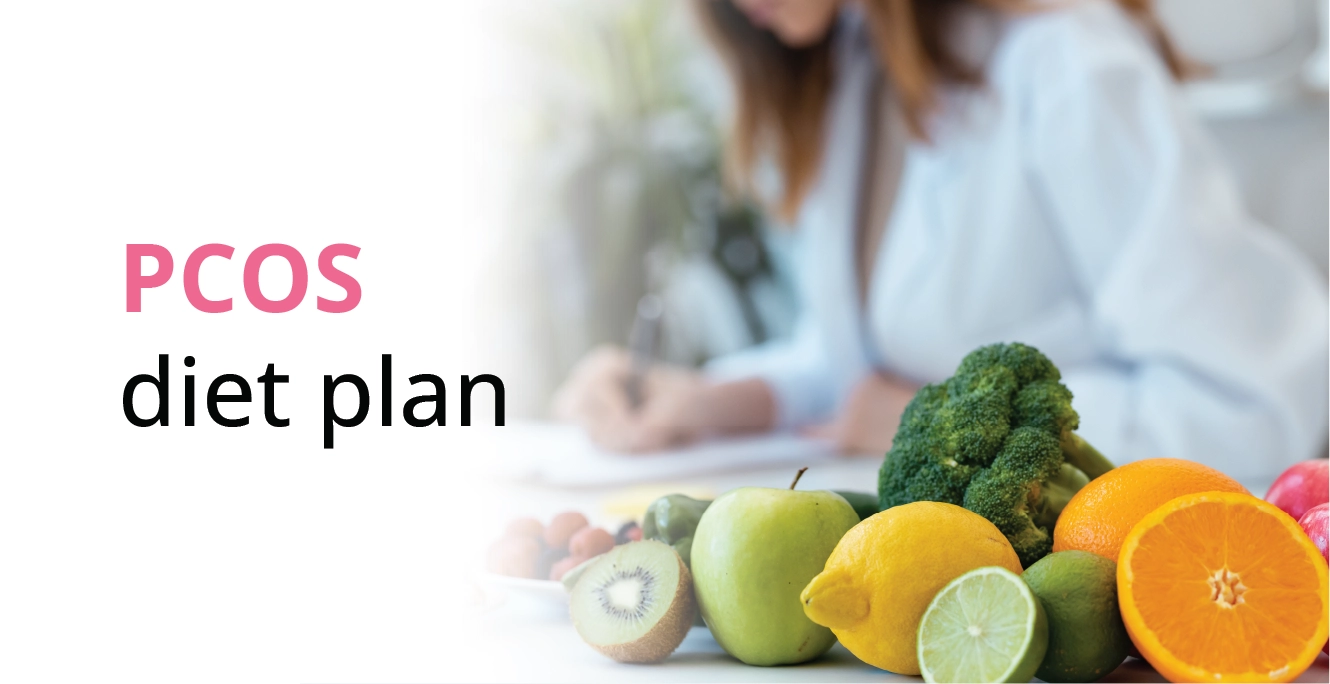
Early Morning (Detox & Energy Boost)
-
Warm water with lemon + 1 tsp flaxseeds (healthy fats, fiber)
-
4–5 soaked almonds and 2 walnuts (healthy fats, insulin resistance support)
Breakfast (Balanced Start)
-
1 bowl oats porridge with skimmed milk + topped with fresh berries (low glycemic index, antioxidant-rich)
-
1 boiled egg OR 1 small bowl of sprouts (lean protein for hormonal balance)
-
Herbal tea or green tea (anti-inflammatory foods)
Mid-Morning Snack (Light & Nutritious)
-
1 apple or pear (low GI, high fiber to stabilize blood sugar)
-
Pair with 1 tbsp peanut butter (healthy fats, keeps you full)
Lunch (Wholesome Meal)
-
1 cup brown rice or 2 multigrain rotis (whole grains for stable insulin levels)
-
1 cup dal/lentils or grilled fish/chicken (lean protein)
-
1 serving mixed vegetable sabzi (fiber + anti-inflammatory foods)
-
Salad: cucumber, tomato, carrot with olive oil dressing
-
½ cup guava or orange slices (vitamin C, supports fertility and overall health)
Evening Snack (Energy Refuel)
-
1 small bowl roasted chickpeas OR boiled corn (protein foods, low GI)
-
1 cup green tea
-
1 kiwi or papaya slice (fiber + antioxidants for hormonal balance)
Dinner (Light & Easy to Digest)
-
2 multigrain rotis or 1 bowl quinoa/vegetable khichdi (whole grains, balanced diet)
-
1 bowl light vegetable curry (avoid fried foods & processed foods)
-
1 portion grilled paneer or tofu (lean protein, improves insulin resistance)
-
Side salad with spinach + olive oil dressing (healthy fats, anti-inflammatory)
Bedtime (Hormonal Support)
-
1 glass warm turmeric milk (plant-based milk if preferred)
-
Optional: 1–2 slices of pomegranate (antioxidants, supports hormonal balance)
Balance Bite: Personalized Nutrition for PCOS Management
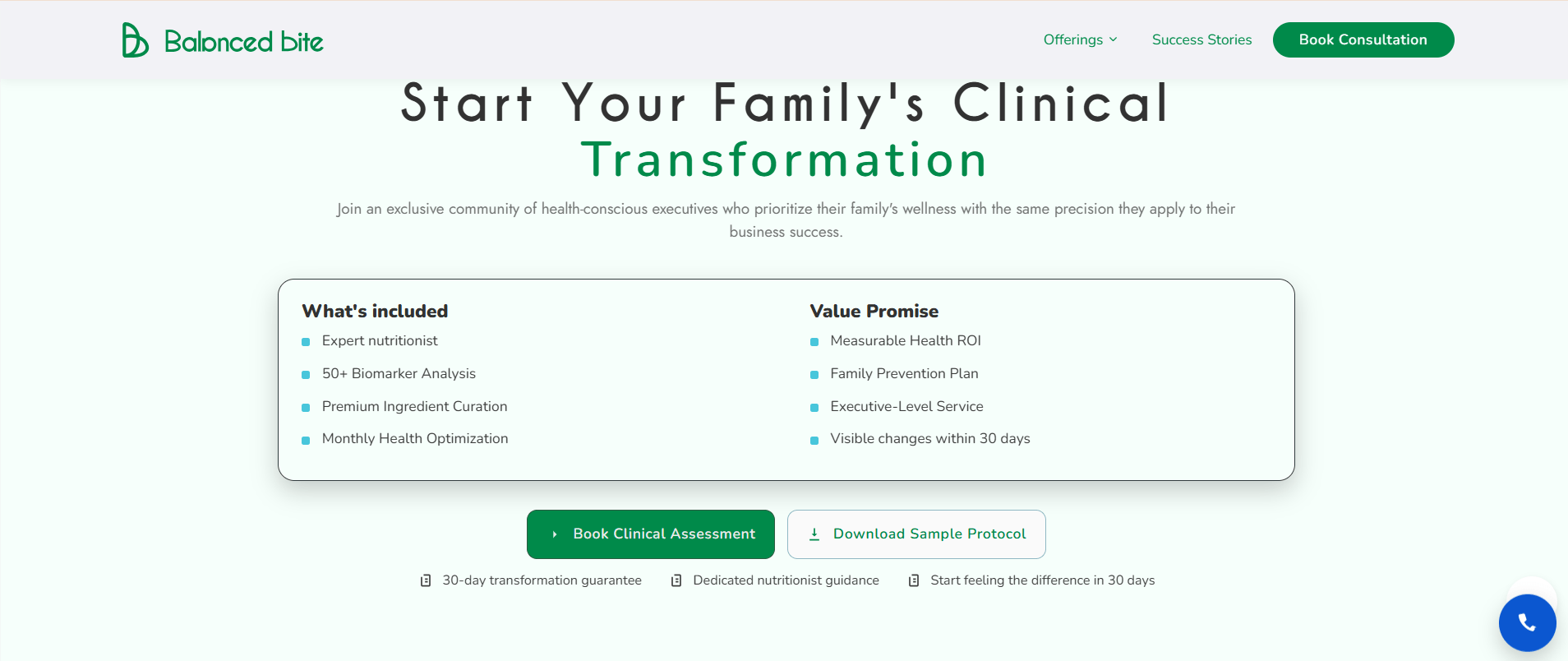
If you’re looking for more than just a diet chart, Balance Bite offers a clinically designed PCOS support program. Their process includes:
-
Expert nutritionist consultation to understand your PCOS symptoms, goals, and lifestyle.
-
Advanced health checks covering 50+ biomarkers, including blood sugar and insulin levels.
-
Custom PCOS diet plan with curated groceries, portion sizes, and recipes—delivered monthly.
-
Continuous progress tracking so your plan evolves as your health improves.
Contact Balance Bite
-
Website:www.mybalancebite.com
-
Email: care@mybalancebite.com
-
Phone: +91 9901184594
-
Location: Online consultations available PAN-India
With a 99% satisfaction rate and measurable results like improved energy, weight control, and better insulin resistance, Balance Bite is more than food—it’s a science-backed system for managing PCOS naturally
👉 Ready to take charge of your health? Book your consultation today and start managing PCOS with a personalized, science-backed plan.
DASH Diet and Mediterranean-Inspired Diet and Lifestyle Changes
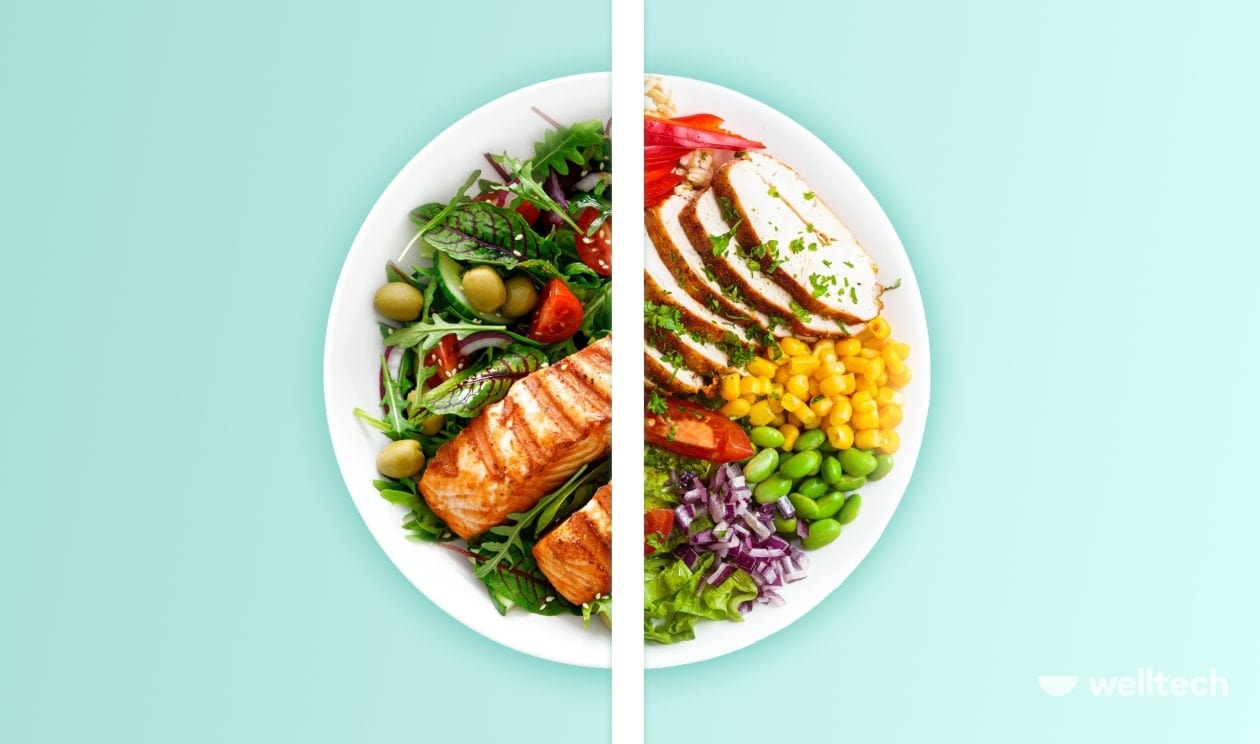
Early Morning (Hydration & Metabolism Kickstart)
-
Warm water with lemon + 1 tsp chia seeds (hydration + fiber)
-
5 soaked almonds and 2 walnuts (healthy fats for insulin resistance control)
Breakfast (Fiber & Antioxidants)
-
1 slice of whole grain bread with avocado spread (healthy carbs + healthy fats)
-
1 boiled egg or ½ cup Greek yogurt (lean protein)
-
1 small bowl of berries (strawberries + blueberries) — among the best fruits for PCOS because of their low glycemic index and antioxidants.
-
Herbal green tea
Mid-Morning Snack (Light & Refreshing)
-
1 orange or kiwi (vitamin C + fiber to balance hormones)
-
A few pumpkin seeds (protein foods + minerals)
Lunch (Mediterranean + DASH Balance)
-
1 cup brown rice OR 2 multigrain rotis (whole grains support stable insulin levels)
-
Grilled chicken/fish OR lentil curry (lean protein)
-
Steamed or sautéed vegetables (broccoli, spinach, zucchini) with olive oil drizzle (anti-inflammatory foods)
-
Side salad: cucumber, tomato, lettuce, topped with olives
-
½ guava slice — another one of the best fruits for PCOS, helps improve insulin resistance.
Evening Snack (Energy + Blood Sugar Control)
-
1 small handful of roasted chickpeas OR hummus with carrot sticks (balanced diet: protein + fiber)
-
1 pear (low GI fruit for steady blood sugars)
-
Green tea with a squeeze of lemon
Dinner (Light & Anti-Inflammatory)
-
Grilled salmon or tofu with herbs (lean protein + healthy fats)
-
Quinoa salad with cucumbers, bell peppers, chickpeas, olive oil, and lemon
-
Side portion of pomegranate seeds (antioxidants to support hormonal balance)
Bedtime (Hormonal & Relaxation Support)
-
1 glass warm low-fat milk with turmeric (anti-inflammatory)
-
1–2 plum slices (low sugar, antioxidant-rich fruit)
How Best Diet and Lifestyle Changes Manage PCOS Symptoms
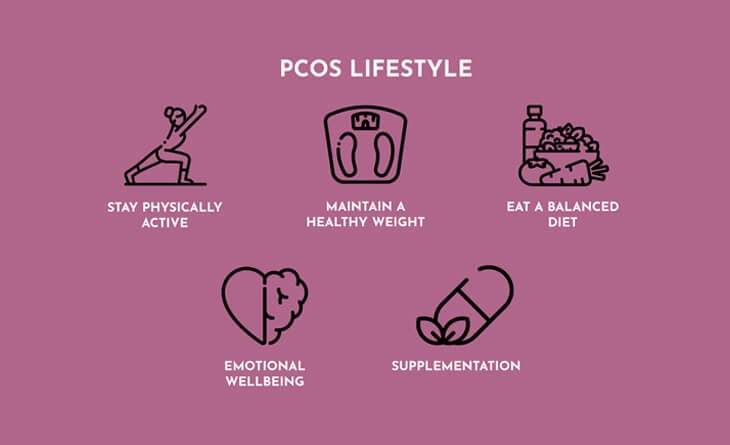
1. Support Weight Loss and Prevent Weight Gain
Many pcos patient find it hard to manage weight because of hormonal imbalance and insulin resistance. Extra weight can make symptoms like irregular periods, acne, and fatigue worse.
How diet helps:
-
Choose low glycemic index fruits (berries, pears, guava) instead of sugary snacks.
-
Add lean protein (eggs, fish, tofu) and healthy fats (nuts, olive oil) to your meals.
-
Cut down on processed foods, fried foods, and refined carbohydrates like white bread.
2. Protect Long-Term Health
PCOS is not just about short-term symptoms. It increases the risk of cardiovascular disease, heart disease, and type 2 diabetes later in life.
How diet helps:
-
Follow a balanced diet rich in whole grains, brown rice, vegetables, and fresh fruits.
-
Include anti inflammatory foods like salmon, flaxseeds, and pomegranate to reduce stress on the body.
-
Avoid saturated fats and processed meats such as hot dogs, which raise cholesterol.
3. Exercise and Daily Movement Matter
Diet alone is not enough. Exercise improves insulin levels, supports weight loss, and boosts mood. Women with PCOS often feel tired, but movement creates energy.
How lifestyle helps:
-
Aim for 30 minutes of exercise daily (walking, yoga, cycling).
-
Pair workouts with pcos-friendly diet choices like apples or kiwi to maintain blood sugars.
-
Build muscle with strength training; this makes the body use insulin better.
Simple Routine:
-
Morning walk + small bowl of berries
-
Mid-day stretch break at work
-
Evening light yoga + orange slices
4. Improve Fertility Naturally
PCOS often makes it harder to get pregnant because of irregular cycles and high male hormones. But food and lifestyle can improve this.
How it helps:
-
Add low glycemic index fruits like berries, guava, and grapefruit to your pcod diet chart. They balance insulin levels and support ovulation.
-
Include lean proteins (fish, eggs, tofu) and healthy fats (nuts, olive oil). These improve egg quality.
-
Keep a balanced diet and maintain a healthy weight.
5. Reduce Inflammation for Better Symptom Control
Inflammation makes PCOS worse. It increases acne, fatigue, and weight gain.
How it helps:
-
Choose anti inflammatory foods like pomegranate, kiwi, and tomatoes.
-
Use olive oil instead of butter to cut saturated fats.
-
Avoid processed foods and fried foods that raise blood sugars and worsen insulin resistance.
Simple tip: Snack on fresh fruits like oranges instead of sugary snacks.
As Dr. Anjali Hooda explains: “Food is medicine for PCOS—cutting inflammation is the first step to balancing hormones.”
6. Lower Risk of Hormonal Disorders
Women with PCOS have a higher risk of long-term health issues like cardiovascular disease, diabetes, and other hormonal disorders.
How it helps:
-
Stick to a pcos diet plan with whole grains (brown rice, oats, quinoa). They protect heart health.
-
Add vitamin C–rich fruits (guava, kiwi, oranges) to support immunity.
-
Control excess sugar intake to avoid spikes in blood sugar levels.
The American Heart Association notes that women with PCOS are twice as likely to face heart problems if diet and weight are not managed early.
PCOS Exercise and Fruits: The Perfect Combo to Lose Weight

1. Yoga & Stretching (Hormonal Balance & Stress Relief)
Yoga and stretching calm your body and reduce stress. High stress raises male hormones and makes pcos symptoms worse.
How it helps:
-
Improves flexibility and blood flow.
-
Reduces hormonal imbalance and supports relaxation.
-
Helps with better sleep, which is key for weight control.
Best fruits to pair:
-
Cherries – support better sleep and reduce inflammation.
-
Pomegranate – rich in antioxidants for hormonal balance.
2. Walking or Light Cardio (Beginner-Friendly & Fat Burning)
A brisk walk, cycling, or light cardio is safe for beginners. It burns calories and improves heart health.
How it helps:
-
Controls blood sugar and lowers insulin levels.
-
Supports steady fat loss without stressing the body.
-
Helps prevent cardiovascular disease linked to PCOS.
Best fruits to pair:
-
Apples – high in fiber, help keep you full.
-
Oranges – packed with vitamin C and support overall health.
3. Strength Training (Build Muscle & Improve Insulin Resistance)
Using weights or bodyweight exercises builds muscle. More muscle makes your body use insulin better.
How it helps:
-
Improves insulin resistance and helps you manage PCOS symptoms.
-
Boosts metabolism for faster fat burning.
-
Supports long-term weight loss and prevents weight gain.
Best fruits to pair:
-
Kiwi – supports digestion and balances blood sugars.
-
Guava – improves insulin resistance and helps maintain a healthy weight.
4. HIIT (High-Intensity Interval Training)
HIIT is short bursts of fast exercise followed by rest. Example: 30 seconds of sprinting, then 1 minute of walking.
How it helps:
-
Burns calories fast and boosts metabolism.
-
Improves insulin levels and helps you lose weight.
-
Saves time — you can finish a workout in 20 minutes.
Best fruits to pair:
-
Grapefruit – supports fat burning and lowers blood sugars.
-
Kiwi – packed with fiber, keeps you full, and improves digestion.
5. Cycling (Cardio & Endurance)
Cycling can be outdoors or on a stationary bike. It’s fun and easy to add to your routine.
How it helps:
-
Improves heart health and lowers risk of cardiovascular disease.
-
Burns fat while building endurance.
-
Reduces stress, which lowers male hormones in PCOS.
Best fruits to pair:
-
Apples – rich in fiber, steady energy for long rides.
-
Oranges – full of vitamin C, support recovery after cycling.
6. Pilates or Core Workouts (Hormonal Support & Flexibility)
Pilates focuses on core muscles and posture. It’s low-impact but highly effective.
How it helps:
-
Strengthens muscles without heavy weights.
-
Reduces hormonal imbalance by lowering stress.
-
Improves flexibility and supports long-term overall health.
Best fruits to pair:
-
Pears – stabilize blood sugar levels and aid digestion.
-
Pomegranate – reduces inflammation and supports fertility.
7. Swimming (Full-Body Exercise)
Swimming works your whole body — arms, legs, and lungs. It’s easy on the joints and fun in hot weather.
How it helps:
-
Full-body fat burning and muscle building.
-
Improves lung health and circulation.
-
Great for women struggling with weight loss and hormonal disorders.
Best fruits to pair:
-
Guava – rich in vitamin C, supports immunity and energy.
-
Cherries – help with recovery by lowering inflammation.
Final Note
Managing PCOS is not about quick fixes. It’s about daily habits that support your body. People with PCOS often struggle with weight gain, acne, and fatigue, but a balanced diet can help.
Adding the best fruits for PCOS like berries, pears, and guava can balance blood sugar and reduce insulin resistance. Pair them with lean proteins, healthy carbs, and a balanced diet to avoid spikes.
Stay away from processed meats, refined carbohydrates, and excess sugar. Women with PCOS should focus on long-term health because conditions like polycystic ovary syndrome and polycystic ovarian disease can increase risks of cardiovascular disease.
As experts say, “Food is your first medicine.” Choose smart, move daily, and take control of your health.




















Leave a comment
Translation missing: en.blogs.comments.discription